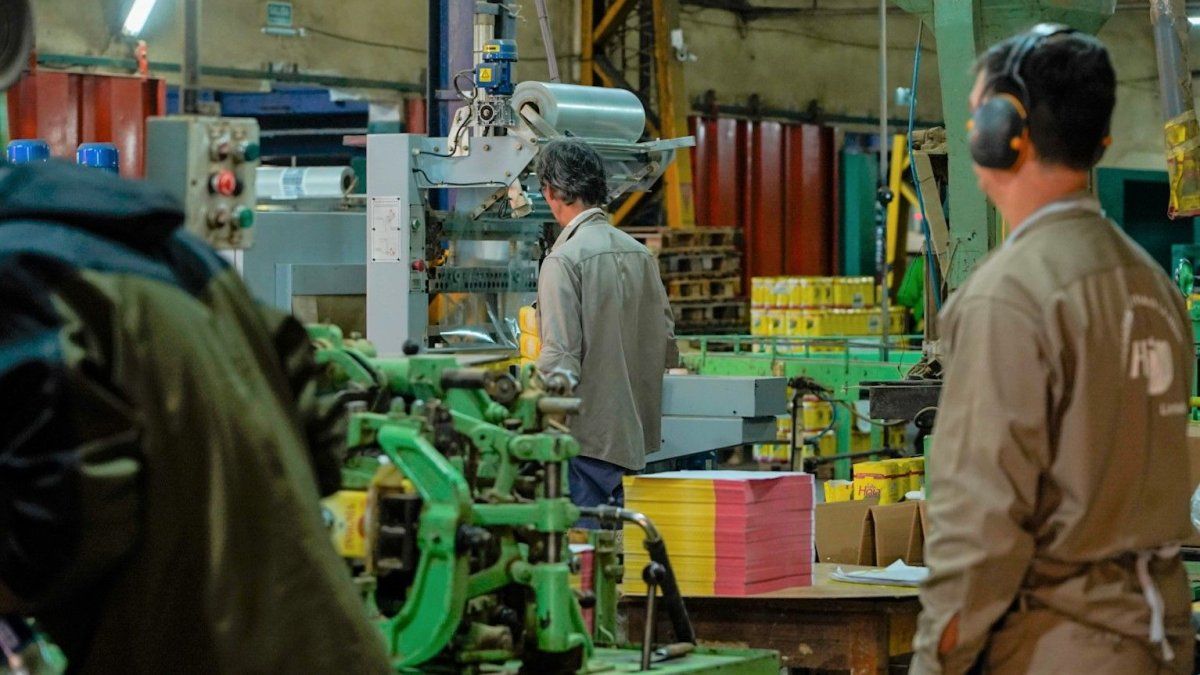A report by Industriales Pymes Argentinos (IPA) denounced that the economic policy of the National Government discourages investment, production and even the continuity of business in the sector through different measures. And he points out that, in a context of economic emergency in general, and in the trade, construction and industrial sectors in particular, this group of companies are being the most affected.
“The burdens that an SME faces today in terms of taxes are something that must be resolved and we developed a project of SME law “We will present this proposal to the Minister of the Interior, Guillermo Francos, to improve the situation of the sector and its contribution to the economy,” said Daniel Rosato, president of IPA, during the presentation of the proposal they submitted to the Government.
RIGI puts SMEs at a disadvantage
The objective of this new regulation is to balance the scales with other companies after the damages caused by the Large Investment Incentive Regime (RIGI). He also said that The sector “is suffering from unfair competition in the market” with products that come from abroad, sometimes even with dumping prices“.
He pointed out, for example, the case of gas meters, which are manufactured in a single company in Argentina under very strict quality requirements, while others with much lower standards are imported from China, which are “made of sheet metal” and imply a strong risk for the user. “They had already been removed from the market some time ago and now they are allowing them to enter again,” warned Rosato.
One of The main problems generated by RIGI For the Argentine productive framework, according to an IPA report on the subject, it implies an offer of tax, customs, exchange and regulatory stability benefits to companies that make investments worth US$200 million or more, but micro, small and medium-sized companies are excluded.
How RIGI creates disadvantages
These benefits They include tax, customs, exchange and regulatory stability dimensions such as:
- Reduction of the aliquot of Income Tax 25% for Vehicles Owning a Single Project (VPU).
- Accelerated amortization of movable property and infrastructure.
- Transfer of tax losses not absorbed within the first 5 years.
- Accelerated refund of VAT balances in favor within a period of no more than three months.
- Payment of VAT through Tax Credit Certificates transferable to third parties.
- Computation of 100% of the tax on bank debits and credits as a credit in the Income Tax.
- Customs benefits: exemption from import duties on capital goods, spare parts, components and inputs and from export duties during the first three years for projects adhering to the RIGI.
- Exchange rate benefits: free availability of foreign currency for exports in a gradual manner (20% the first year, 40% the second and 100% from the third year onwards) and foreign currency for local or external financing without restrictions.
- Tax, customs and exchange stability for 30 years and a guarantee of not being affected by more burdensome regulations.
“This is a regime that promotes unfair competition between SMEs (predominantly national) and large companies (many of which are and would be foreign), since, once the RIGI is implemented, they will have greater obligations compared to the companies covered by it,” IPA denounces. And it asserts that “all this implies a time bomb” for the sector.
Some of the points raised by the proposed SME law
In this framework, the IPA Observatory launched the proposal of the SME lawa new regulation that allows the implementation an elimination of the payment of withholding taxes on exports for micro, small and medium-sized enterprises that add value and export products. They also demanded that the State provide training, assistance and rate subsidies to be able to export and increase the volume of sales abroad.
This is how he put it the economist Pablo Bercovichwho pointed out that the proposal is tax exemption to small businesses that include SMEs in their value generation chain.
For its part, Economist Martin Kalos He criticized that “it is unacceptable that the Government does not develop SME incentive policieswhich are key to Argentina’s development.” He said that the cost that has increased the most for the sector and that threatens the dynamics of companies is the cost of energy. He stressed, in this regard, that a certain predictability must be generated in the evolution of rates so that they can plan their expenses.
Daniel Rosato.jpg
Daniel Rosato, president of Argentine SME Industrialists (IPA).
Kalos also referred to the tax leg and said that We need to review how taxes are applied to SMEs in Argentina He also pointed out that it is important to exempt them, for example, from the check tax. He also suggested that small and medium-sized businesses be given benefits that are on par with the benefits received by other sectors, which enjoy many special regimes and exemptions.
As far as the employment point of view is concerned, IPA proposes a special chapter in its bill and the focus is on compensation calculations and price updates at checkout.
SMEs demand an industrial policy
On the other hand, Rosato highlighted the importance of outlining a concrete industrial policy plan that allows us to carry out an economic project that encourages competitiveness and recovery of economic activity. “The revenue is falling as a consequence of the problems that economic activity is suffering and we have a substantial loss of manufacturing SMEs, which generate significant losses. Furniture, footwear and textile manufacturers are temporarily closing their companies because they cannot replenish their merchandise,” he warned.
He said that we must The Government must urgently resume industrial policy and that the application of the RIGI is “a time bomb” for SMEs because it is very beneficial for some foreign companies, but leaves SMEs out. “We have to see how the regulations evolve, but The comparative table that we made reveals that the benefits for companies versus the pressure that Argentine SMEs have are very disadvantageous. for the latter. The benefits for multinationals against the demands for national industries imply serious damage to the sector,” warned Bercovich.
Source: Ambito




